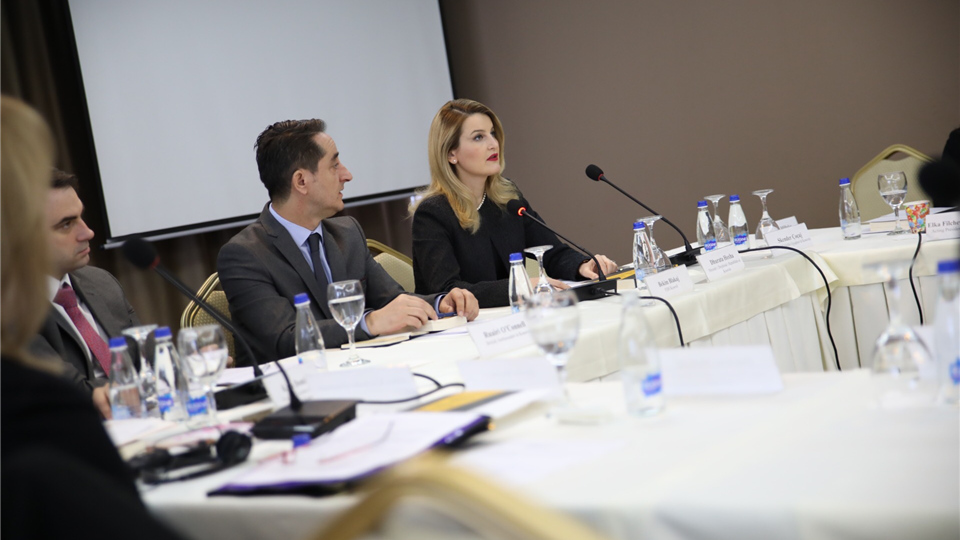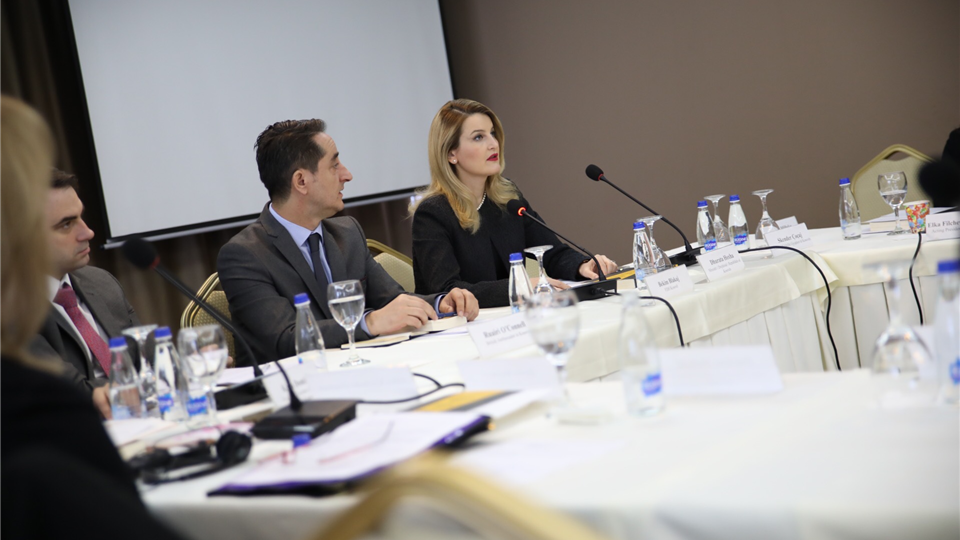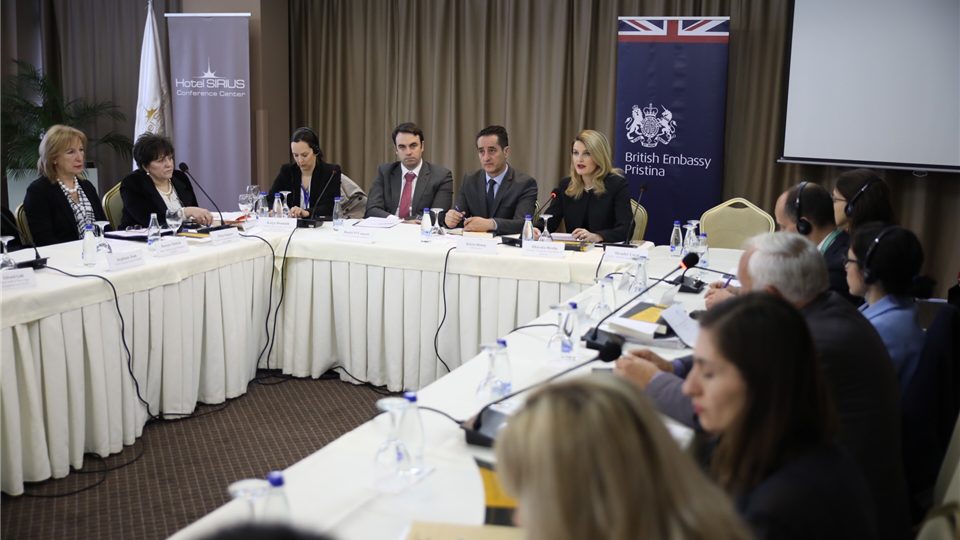

Minister Hoxha: It is painful that even 18 years after the war, the war crimes perpetrators have not been brought to justice
Minister Hoxha thanked all those who have contributed in drafting the report which will undoubtedly help Kosovo institutions in their fight against crime in general, and ethnically and politically motivated crimes in particular, as well as in dealing with war crimes.
“Speaking about these crimes is among the most difficult topics for each of us, for damages caused by these crimes, starting with the suffering of victims, affect us all as persons responsible for the institutions we lead, but first and foremost they affect us as humans. It is our obligation as humans to express our solidarity with them and help them through moral, family, and social support. We must help them integrate in society and not feel alone. As institutions it is our obligation to take all the necessary measures to protect them by law”, said Minister Hoxha.
As for the war crimes, said Minister Hoxha, it is painful for all of us that even 18 years after the war, mothers, fathers, sisters, brothers, spouses, and children are still left in the dark. Therefore, we must provide answers to questions that would lead to the truth.
“Providing them with the truth is the least we can do to ease their pain: What happened and why? How did their family members go missing? Where are their family members? How can they move on? Will anyone be punished for viciously killing their family member just because they spoke a different language or belonged to a different nation?”. They say “justice delayed is justice denied”, said Minister Hoxha, therefore let’s all work together to not deny justice for the victims of these crimes. I hereby invite judicial institutions to carry out their duties with high priority in punishing the perpetrators of war crimes committed in Kosovo.
British Ambassador Ruairí O'Connell offered further support to this sensitive issue and praised the work done by Minister Hoxha. He pointed out the willingness for support due to lack of experience of the Kosovo judiciary in the field, and emphasized the need for continuous commitment by local authorities in this regard.

